
We eat our way around Mauritius, the world’s most underrated culinary spot.
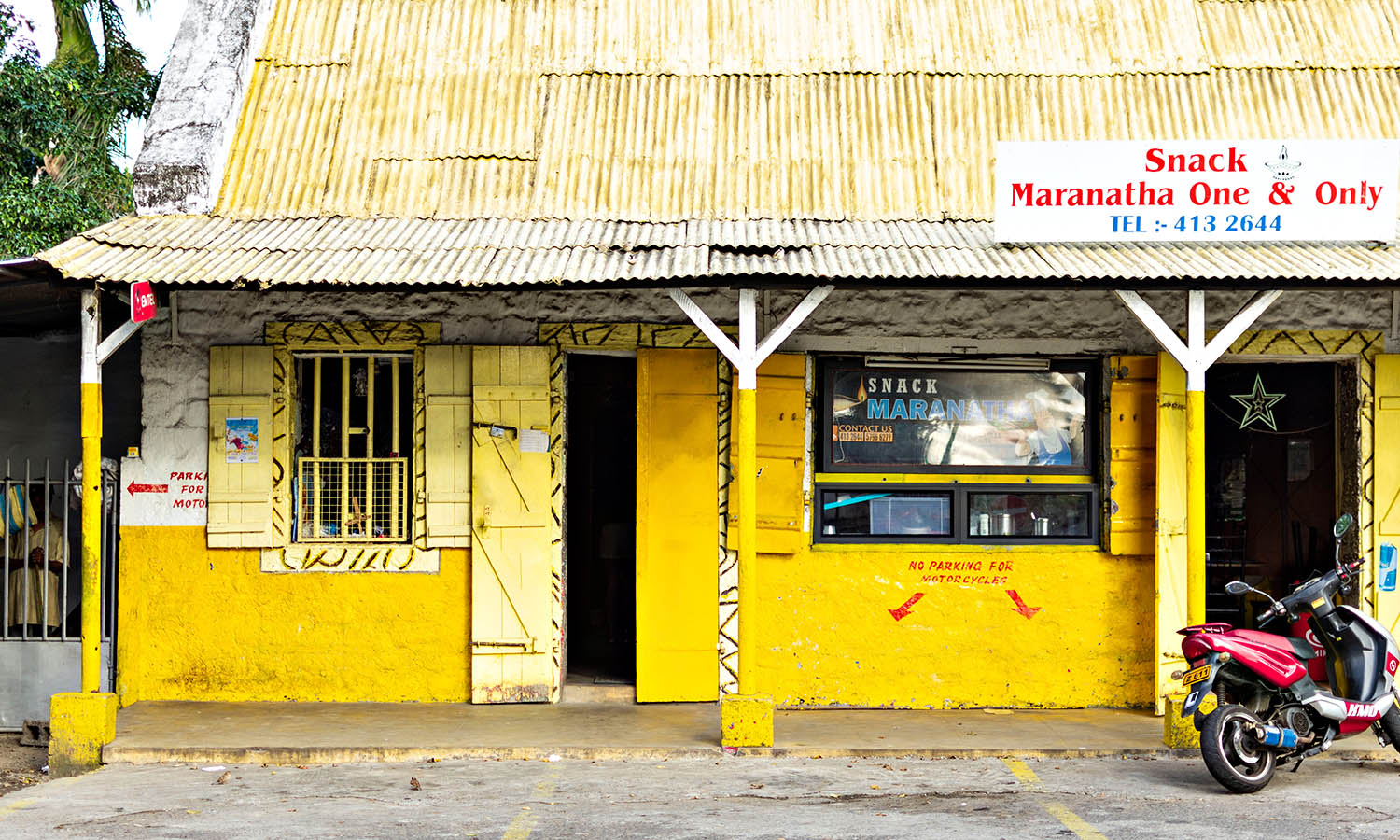
Click PLAY to watch
It’s noon in Mauritius, and while I could be lounging in a hammock instead I’m hair-up in the hotel kitchen scraping fresh spices against a slab of volcanic rock.
I’m doing so willingly, I should probably add. It’s not like payment for my ocean-view room is in manual labour. No, I’m just staying at SALT of Palmar—a boutique adults-only hotel—where the focus on food is very, very immersive. Immersive to the point I’m learning how to make a traditional chicken curry, the most traditional way, from their local chefs.
Hence, the slab of rock. It’s like the Mauritian mortar and pestle—used for centuries to create ridiculously aromatic curry pastes. “This is how our mum, how our grandparents have always cooked,” Chef Visham tells me, as he crushes cumin and coriander, cardamom and cloves against the black slab. He gestures for me to add fresh tomato to the mix; I’ve already lost count of the ingredients going into this curry.
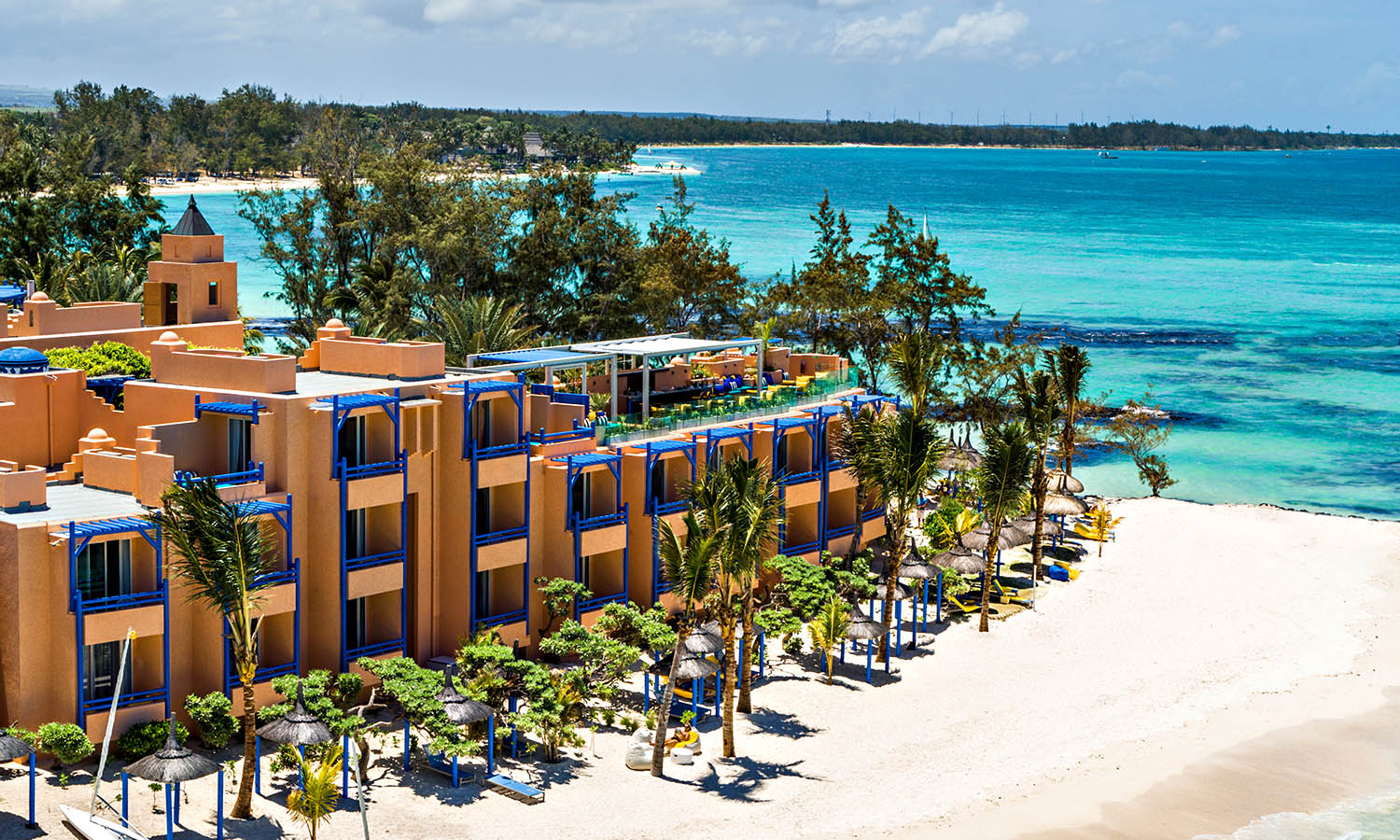
For those of you who don’t know, Mauritius is a small island off the coast off the bigger island of Madagascar, off the east coast of Africa, and a comfy flight with Air Mauritius. But it’s also a literal melting pot of cultures, from African and French, to Indian and Chinese. All of which makes modern Mauritius an underestimated gastronomic giant.
I had no idea about this culinary diversity before I arrived. To be fair, I knew very little about Mauritius, full stop. I didn’t know it’s the wealthiest African nation (per capita); has over 27 microclimates; can be circumnavigated in a day; is the only country in Africa with Hinduism as its dominant religion; is home to one of the world’s largest coral reefs and an underwater waterfall; or that Mark Twain once said “Mauritius was made first and then heaven, heaven was copied after Mauritius”.
I journeyed to this island blind. Which isn’t a bad way to travel, it just means everything comes as a surprise.
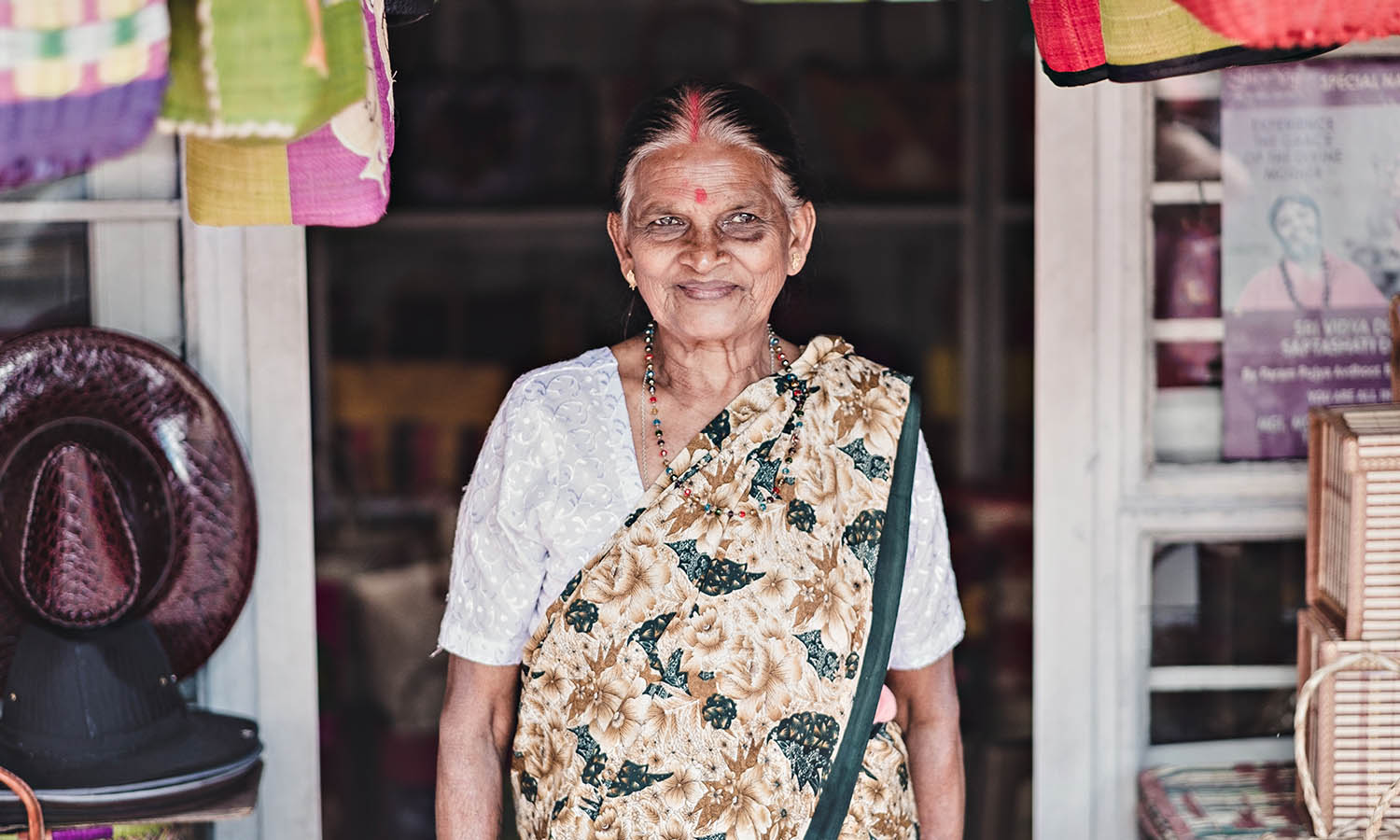
Like, I didn’t expect to be staying at a hotel that so deeply values using local ingredients that even my bathrobe is coffee-infused and my slippers are imbued with cinnamon. I didn’t expect a rooftop mixology session where I learned to make a ‘No Smoke Without Fire’—a cocktail inspired by the burning sugar cane fields during harvest time.
And I didn’t expect to be joining Chef Visham in his kitchen, and yet here I am, listening to the popping sounds of the masala dry roasting over high heat. He asks me, what I can only assume is a rhetorical, slightly existential culinary question: “If you’re going to eat a curry, you need to feel the spice in your mouth, otherwise what is a curry?”
Well Chef, you got me there.
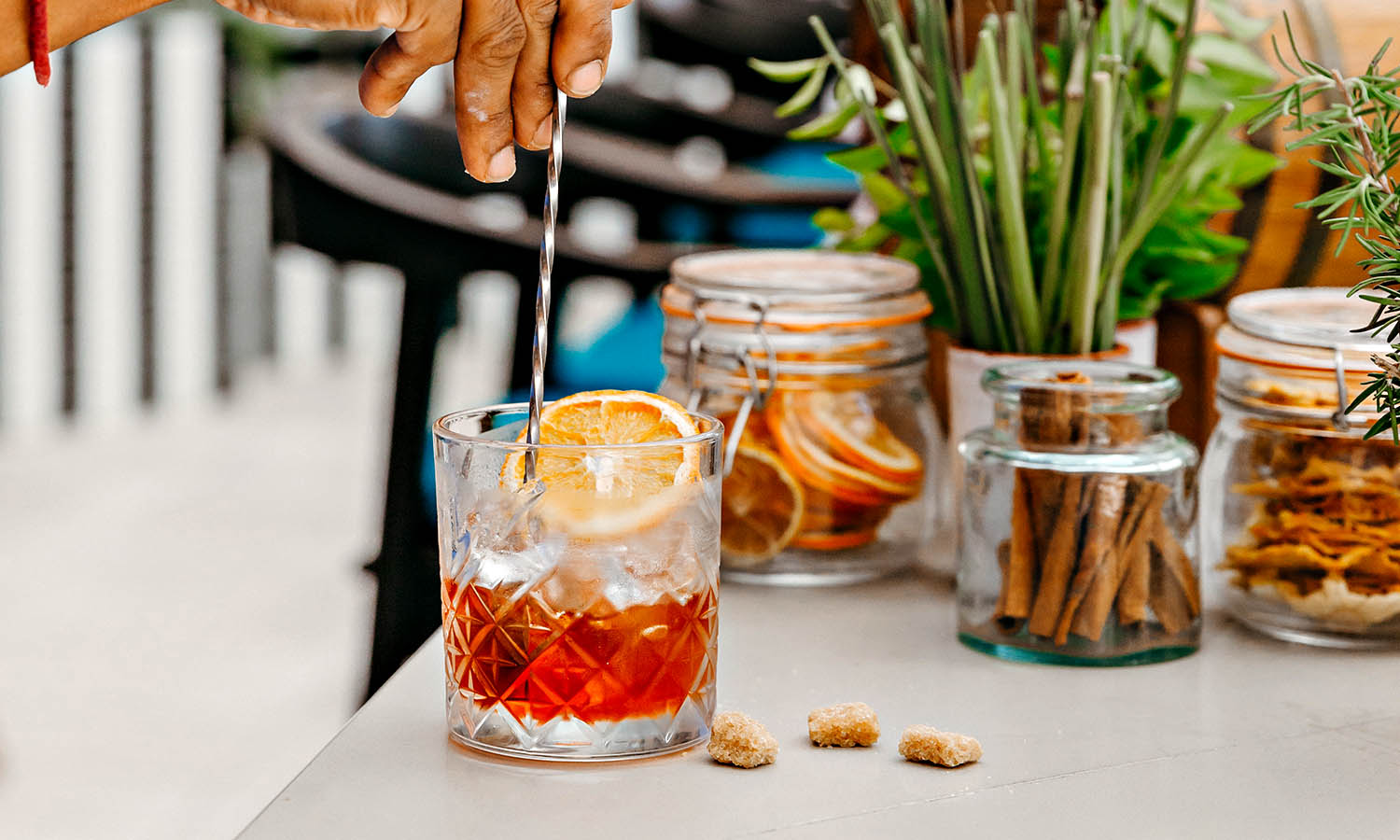

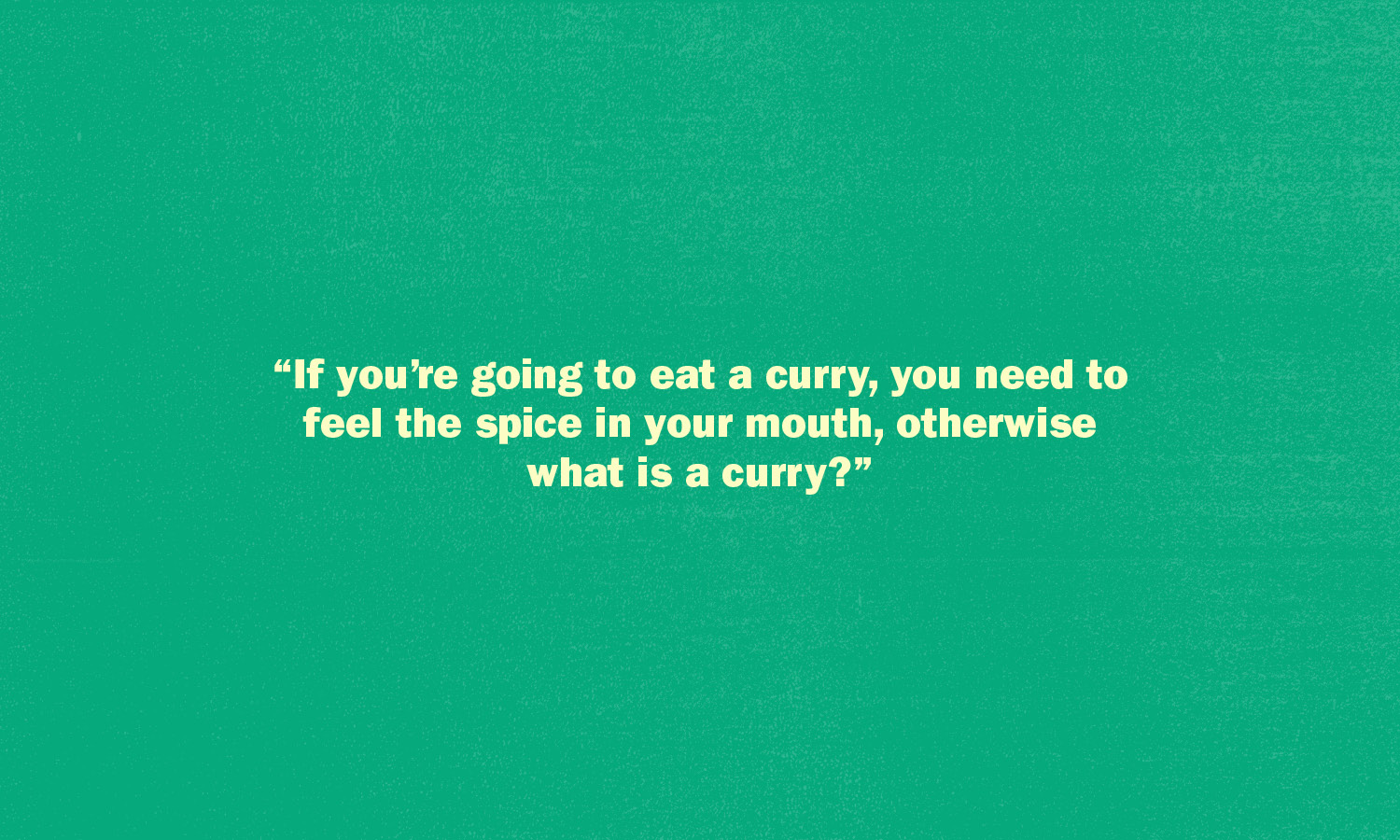
One morning I journey to Flacq market. A picture-perfect island farmers market, with rows and rows of verdant veggies and boisterous hawkers—plus a little cafeteria out the back where locals go for a cheap feed.
My French is pretty much non-existent and I don’t have a guide, so we default for sign language. Pointing is universal, after all. I point to coconut-dusted balls (ladoo) that are syrupy and moreish. I point to a milky drink (alouda) that looks like boba and tastes like… well, a sweeter boba. I point to a sign that says dholl puri and am handed a flatbread stuffed with split peas and turmeric, topped with two types of curry.
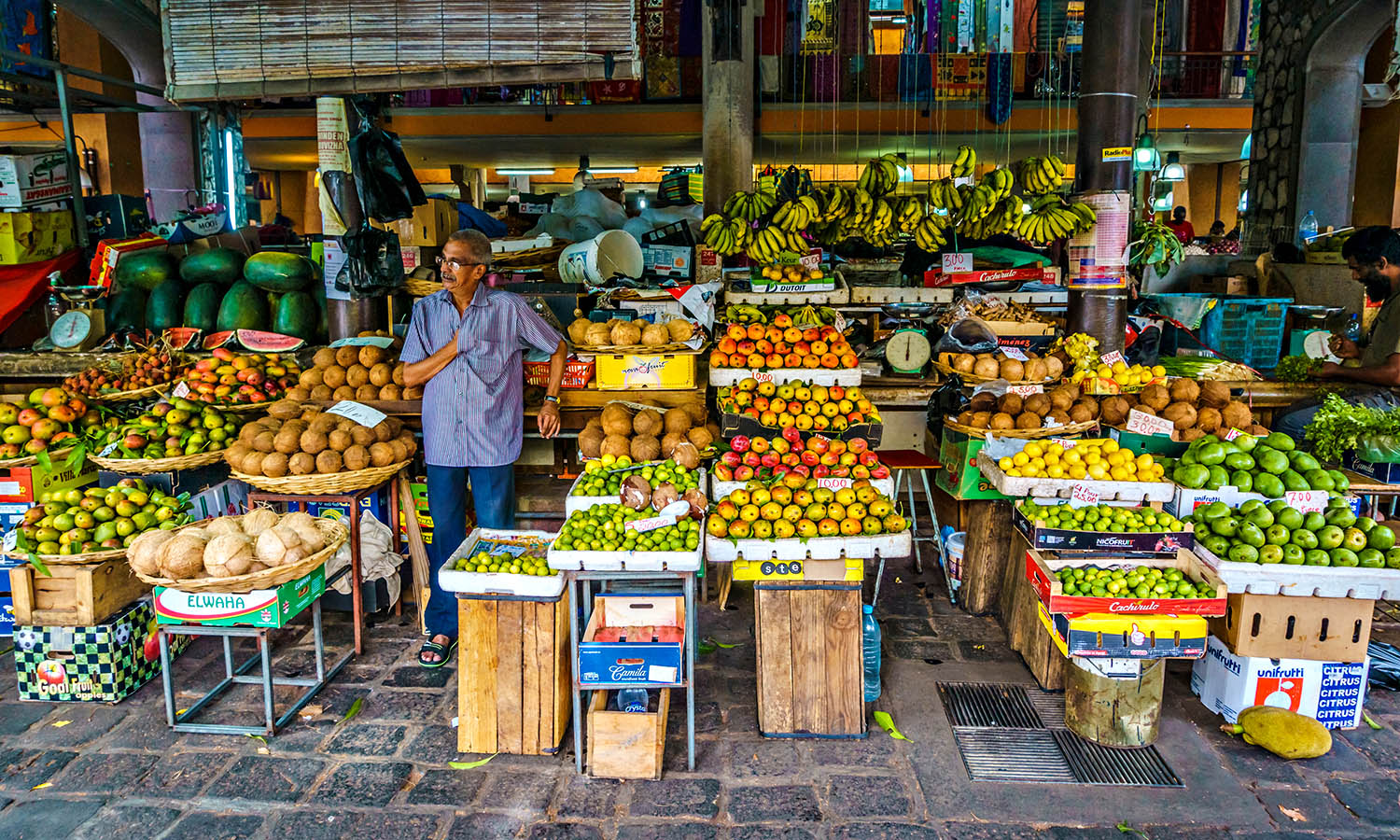
There’s biryani and fried noodles, little pink cakes and fluffy brown dhal fritters. I can taste a hell of a lot of Indian ingredients, see a heap of French pastry skills and more than a little Chinese influence. But it’s all got its own Mauritian twist. There’s a surprising amount of tomato-based curries and very few coconut milk substitutions. I find myself so full I’m handing out bags of Mauritian sweet treats to children, like a weird, foreign, female Santa Claus.
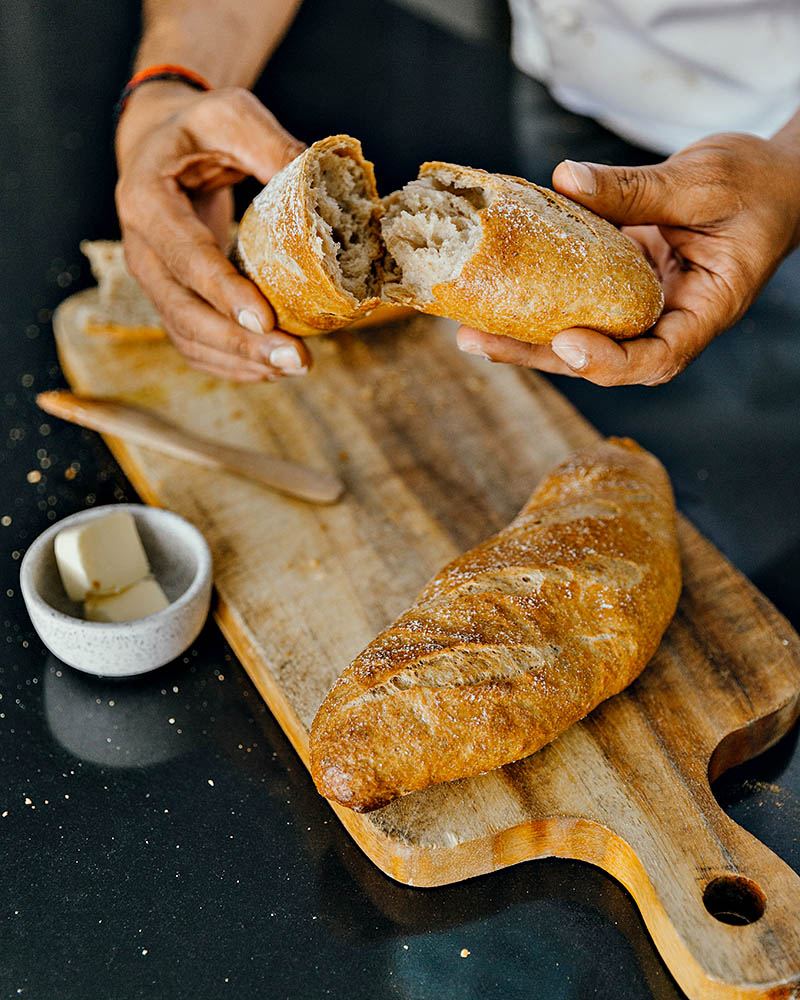
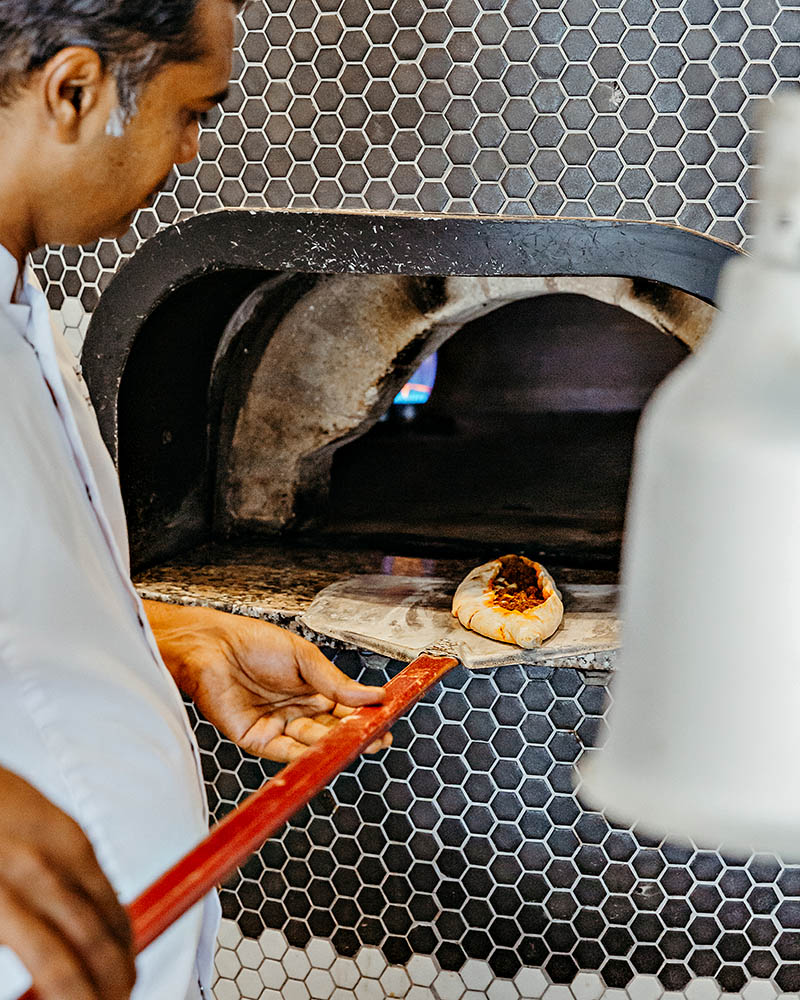
Another morning I join Chef Yannick in his pastry kitchen where we make sourdough baguettes using his 35-year-old starter. That’s right, his sourdough starter is older than me. “We’re very good parents”, Chef Yannick tells me with a wink. “We feed it apple and grape juice every single day… because baking is not just learning how, it’s doing it with love.”
The French would be delighted.
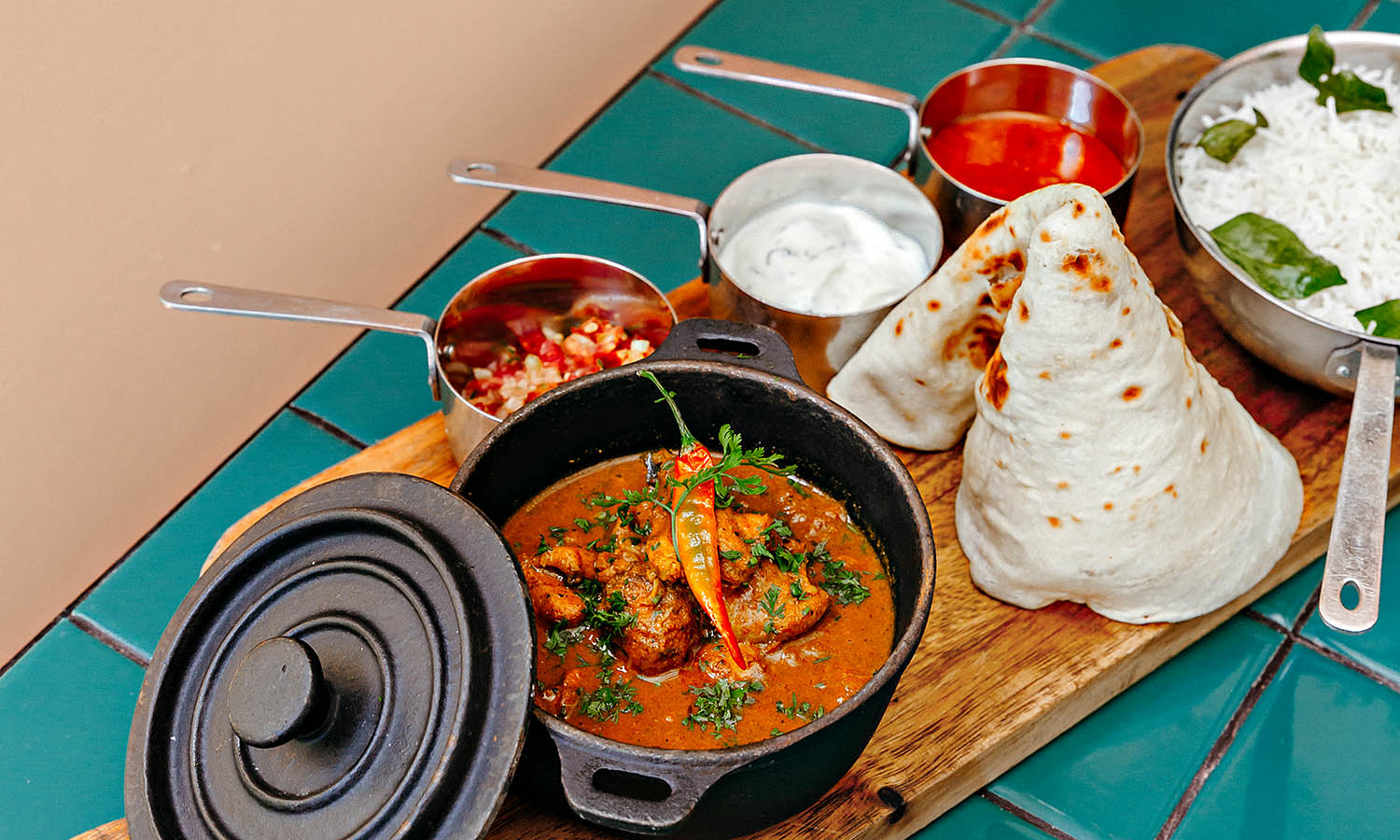
It’s that love, and tradition, which keeps Chef Visham grinding his curry masala against that epic piece of stone, instead of using a machine. I ask him what dish on his (impressive) menu is the most popular, and he laughs— “this one”, he says pointing to our half-made chicken curry.
And when I finally sit down to eat, I am overwhelmed with all the reasons why. This dish tastes like centuries of culture have come together in a bowl. Chef Visham’s grandmother would be very, very proud.
get lost flew as a guest of Air Mauritius and stayed with SALT of Palmar.
